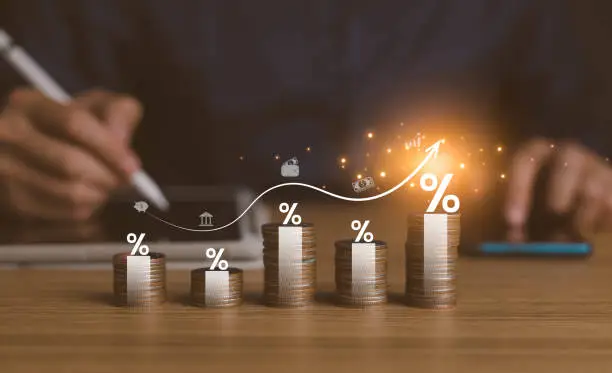The Best Fluffy Pancakes recipe you will fall in love with. Full of tips and tricks to help you make the best pancakes.
Table of Contents
Introduction to Budgeting and Personal Finance

Budgeting and Personal Finance Management
Budgeting and personal finance management are integral components of achieving financial stability and attaining one’s financial goals. At their core, these practices involve the strategic allocation of resources, enabling individuals to make informed decisions about their income and expenditures. A budget serves as a guideline that encompasses all aspects of an individual’s financial life, including income, fixed and variable expenses, savings, and investment opportunities.
The significance of a well-structured budget is paramount; it allows individuals to identify their financial habits, recognize spending patterns, and evaluate their priorities. Through this evaluation, one can take proactive steps to ensure financial well-being. Establishing a personal budget not only aids in tracking expenses but also promotes accountability, ensuring that individuals remain focused on their goals. Additionally, a budget helps mitigate the risk of overspending, which can lead to unnecessary debt and financial stress.
Effective personal finance management plays a crucial role in fostering financial health. It encompasses not just budgeting but also financial planning—setting short-term and long-term objectives for savings and investments. This holistic approach encourages individuals to develop strategies that respond to changing economic conditions and personal circumstances. learn: how to Stop Wasting Money! The Best Ways to Optimize Your Personal Budget; A well-executed personal finance plan can empower individuals to build an emergency fund, pay off debts, and invest in future opportunities.
In essence, budgeting and personal finance management are essential for anyone striving for a secure and stress-free financial life. By understanding and implementing these principles, individuals can lay the groundwork for achieving their financial aspirations and navigating the complexities of personal finance with confidence.
Understanding Your Financial Situation
To embark on a successful journey towards effective budgeting and personal finance management, it is essential to first assess your current financial situation. This involves a comprehensive analysis of your income, expenses, assets, and liabilities. Understanding these components provides a solid foundation for any budgeting strategy.
Start by evaluating your income sources. This includes your salary, bonuses, rental income, and any additional streams of revenue. Accurately calculate your total monthly income, as this figure serves as the basis for formulating your budget. It is important to be thorough in this assessment to avoid underestimating your financial capacity.
Next, it is crucial to analyze your expenses. Categorizing your expenditures into fixed and variable costs will help you see where your money goes each month. Fixed costs include rent or mortgage payments, utilities, and loan repayments, while variable costs encompass groceries, entertainment, and discretionary spending. Tracking these expenses can be effectively accomplished through budgeting apps or spreadsheets, which facilitate a clearer overview of your financial habits.
Additionally, evaluating your assets and liabilities is vital. Assets may include savings accounts, investments, property, and vehicles, whereas liabilities comprise debts such as credit card balances, student loans, and mortgages. Calculating your net worth, which is the difference between your total assets and total liabilities, provides insight into your financial health.
There are various tools and methods available to help accurately track finances, such as personal finance management software, mobile applications, and traditional methods like ledger notebooks. These tools can simplify the process, ensuring accurate record-keeping and analysis. By thoroughly understanding your financial situation, you will be well-equipped to set practical budgeting goals and implement an effective financial management strategy.
Setting Financial Goals

Setting financial goals is a pivotal step in effective budgeting and personal finance management. These goals can be categorized into short-term, medium-term, and long-term objectives, each serving a distinct purpose in shaping one’s financial journey. Short-term goals, typically defined as those achievable within a year, might include saving for a vacation or reducing monthly expenses. Medium-term goals, spanning one to five years, could involve accumulating a down payment for a home or paying off student loans. Long-term goals, on the other hand, often extend beyond five years and might encompass retirement planning or funding a child’s education.
The importance of having clear and achievable objectives cannot be overstated. Financial goals provide direction and motivation, acting as a significant influence on budgeting decisions. By defining specific targets, individuals can prioritize their expenditures, determine savings rates, and make more informed financial choices. This clarity not only fosters discipline but also reduces the anxiety associated with financial uncertainty. For example, if a person has a goal to save for a house, they are likely to scrutinize their spending habits more closely, steering clear of unnecessary purchases that could impede their progress.
Moreover, these goals serve as benchmarks for measuring financial success. As individuals track their progress towards these objectives, they can refine their budgeting strategies and adjust their savings plans accordingly. Utilizing tools like budgeting apps or spreadsheets can enhance this process, providing visual representations of their financial trajectory. By integrating the concept of goal setting into everyday budgeting practices, individuals can create a comprehensive roadmap that helps them navigate their financial future more effectively. Ultimately, clearly defined financial goals are essential for sustainable financial health and success.
Creating a Budget: Step-by-Step Guide
Creating a budget is an essential aspect of personal finance management that enables individuals to take control of their financial future. To begin, it is imperative to assess your current financial situation, which includes evaluating your income, expenses, debts, and savings. This assessment will serve as the foundation for your personalized budget.
Next, determine the budgeting method that best aligns with your lifestyle and financial objectives. Two popular approaches are the 50/30/20 rule and zero-based budgeting. The 50/30/20 rule suggests allocating 50% of your income to necessities, 30% to discretionary spending, and 20% to savings and debt repayment. This method offers a balanced view, ideal for those who appreciate structured spending categories.
On the other hand, zero-based budgeting requires every dollar of income to have a specific purpose, ensuring that income minus expenses equals zero. This approach may suit those who thrive on meticulous oversight of their finances, as it necessitates careful tracking and adjustment of all expenditures.
Following the selection of a budgeting method, list all sources of income and outline all monthly expenses, categorizing them into fixed (e.g., rent, utilities) and variable (e.g., entertainment, groceries) costs. This visibility helps in recognizing spending patterns and areas where adjustments can be made. Once you have laid out your income and expenses, compare the two. If your expenses exceed your income, identify non-essential expenditures that can be reduced or eliminated.
Finally, maintain flexibility in your budgeting process. Life circumstances can shift, necessitating alterations to your budget. Regularly reviewing and adjusting your budget provides an opportunity to remain aligned with your financial goals, allowing you to effectively manage personal finance dynamics over time. A well-structured budget acts not only as a financial tool but also as a motivator towards achieving greater financial stability and success.
Tracking Expenses: Tools and Techniques

Tracking expenses is fundamental to effective budgeting and personal finance management. It not only helps individuals understand their spending habits but also enables them to make informed financial decisions that align with their goals. By carefully monitoring and recording expenses, one can identify areas where cuts can be made, facilitate savings, and ultimately work toward achieving financial stability.
In today’s digital age, several tools are available to assist with the tracking of expenses. Budgeting applications, such as Mint, YNAB (You Need A Budget), and PocketGuard, offer intuitive interfaces and automated features that simplify the process. These apps typically allow users to link their bank accounts and categorize spending automatically, thereby providing an instant view of their financial situation. Moreover, many budgeting apps offer customizable dashboards that help users visualize their financial progress over time.
For those who prefer a more traditional approach, manually tracking expenses through spreadsheets can be equally effective. Programs like Microsoft Excel or Google Sheets provide the flexibility needed to create personalized tracking systems tailored to individual needs. By setting up categories for different types of expenditures and regularly updating the spreadsheet, users gain insights into their spending trends. This method requires discipline but can be highly rewarding as it fosters a deeper understanding of one’s financial behavior.
Another technique for tracking expenses involves the use of pen and paper. By maintaining a physical journal, individuals can jot down their daily expenditures, which promotes mindfulness regarding unnecessary purchases. This manual method can help develop a habit of expense tracking that is beneficial in the long run.
Regardless of the method chosen—be it digital or analog—consistent tracking of expenses is pivotal for maintaining financial discipline. Such regularity not only strengthens one’s budgeting skills but also enhances the likelihood of achieving set financial goals. It is imperative to find a system that resonates with one’s preferences to ensure that tracking becomes a seamless part of daily life.
Cutting Costs and Saving Money
Effective budgeting and personal finance management often hinge on the ability to reduce unnecessary expenses. One of the first areas to consider when aiming to save money is subscriptions. Many individuals subscribe to various streaming services, magazines, and apps, often without fully utilizing their benefits. Conducting an audit of these subscriptions can lead to significant savings; reevaluating which services are truly valuable can streamline expenses and is a practical step towards optimizing one’s budget.
Another vital area to scrutinize is grocery spending. Small changes in shopping habits can yield considerable savings. Creating a meal plan and shopping list before heading to the store helps in avoiding impulse buys. Additionally, utilizing coupons and taking advantage of sales can further enhance savings. Buying seasonal produce often costs less, while opting for store brands can provide similar quality at a reduced price. It’s essential to be mindful of food waste; planning appropriately ensures that groceries are consumed and money is not wasted.
Utilities represent another significant component of monthly expenses. Simple adjustments can lead to substantial reductions in utility bills. For instance, being conscious of electricity usage — turning off lights when not in use or using energy-efficient appliances — can lower electric bills. Additionally, considering options like bundled services for internet and cable can provide savings without sacrificing quality. Regularly evaluating these services allows individuals to stay informed about competitive rates and potential savings. Each of these areas offers manageable strategies to cut costs, encouraging individuals to optimize their spending habits and enhance their overall financial health.
Adjusting Your Budget: When and How to Reevaluate

Budgeting is not a static process; it requires regular evaluation and adjustment to effectively manage personal finances. Changes in circumstances, such as marriage, the arrival of a child, job loss, salary increase, or financial setbacks, necessitate a reevaluation of one’s budget. By acknowledging these changes, an individual can better align their financial plan with their current realities, ensuring that it remains practical and achievable.
It is advisable to review your budget on a quarterly basis or after any significant life event. Regular evaluations allow for timely responses to altering financial situations, ensuring that spending and saving practices adequately reflect one’s needs. For instance, if you have experienced an increase in income, it may be wise to allocate a portion of that additional money toward savings or investments. Conversely, if you face a decrease in income, you may need to modify your budget to prioritize essential expenses and cut back on discretionary spending.
Unexpected expenses, such as medical emergencies or repairs, also prompt a reevaluation. When these incidents arise, it is crucial to adjust the budget to accommodate these costs, ensuring that funds are allocated for unforeseen events while maintaining a balance in other areas. This may involve examining non-necessity expenses and determining where reductions can be made temporarily or permanently.
When implementing budget adjustments, consider utilizing digital tools or applications designed for personal finance management. These tools can provide insights into spending habits and offer options for adjusting allocations effectively. Additionally, maintaining open communication with family members regarding any budget changes helps foster a collaborative atmosphere in managing finances.
By adopting a proactive approach to revising your budget, you can enhance financial resilience, adapt to new circumstances, and continue pursuing your financial goals in a structured manner.
The Importance of Emergency Funds
An emergency fund plays a critical role in personal finance management, serving as a financial safety net for unforeseen circumstances such as job loss, medical emergencies, or unexpected home repairs. In essence, an emergency fund is a dedicated savings account that provides quick access to cash when unexpected expenses arise, thereby ensuring that individuals do not fall into debt or compromise their financial stability in times of need.
Determining the appropriate amount to save for an emergency fund can vary based on individual circumstances. A commonly recommended benchmark is to have three to six months’ worth of living expenses readily available. This amount can help cover essential costs, such as housing, food, and transportation, during a transitional period. Individuals with less stable income streams or dependent family members may consider saving for a longer duration to provide a more robust safety net.
Building and maintaining an emergency fund requires planning and discipline. Start by assessing your monthly expenses to calculate a target savings goal. From there, consider setting aside a specific portion of your income each month into a separate savings account intended solely for emergencies. Using automated transfers can simplify this process, ensuring consistency in contributions.
To stay motivated, consider establishing milestones as you work towards your emergency fund goal. Each time you reach a savings benchmark, celebrate this achievement to reinforce positive habits. It is also vital to periodically review and adjust your emergency fund, particularly after significant life changes, such as a new job or relocation. By maintaining an adequate emergency fund, individuals can navigate financial shocks with confidence, ultimately leading to improved financial security and peace of mind.
Educating Yourself About Personal Finance

In today’s fast-paced financial environment, understanding personal finance is crucial for achieving long-term financial stability and success. One of the most effective ways to enhance your financial literacy is by engaging in continuous self-education. A wealth of resources is available, enabling individuals to deepen their knowledge of budgeting, investing, and effective money management strategies. By actively seeking out these resources, you can empower yourself to make more informed financial decisions that contribute to your overall wealth and well-being.
Books are an excellent starting point for anyone looking to improve their understanding of personal finance. Classics such as “Rich Dad Poor Dad” by Robert Kiyosaki and “The Total Money Makeover” by Dave Ramsey provide practical advice and insights into building wealth and managing finances. Additionally, contemporary authors like Ramit Sethi and Suze Orman offer valuable perspectives and strategies tailored to the modern financial landscape. Exploring various titles enables you to glean different viewpoints and methodologies, fostering a comprehensive understanding of financial concepts.
In addition to books, numerous online articles and blogs focus on personal finance topics. Reputable financial websites and blogs frequently publish up-to-date articles on budgeting techniques, investment opportunities, and economic trends. These platforms often include expert opinions, case studies, and practical tips, making them an invaluable resource for individuals seeking to stay informed about current financial matters.
Podcasts have also emerged as a popular means of education, providing accessible discussions on personal finance topics. Shows like “The Dave Ramsey Show” and “ChooseFI” offer listeners insights from seasoned financial experts and real-life stories that can inspire and motivate. Participating in local workshops or online webinars can further enhance your learning experience, connecting you with like-minded individuals and financial professionals. Together, these resources can significantly improve your financial literacy, leading to informed decision-making and lifelong financial health.









